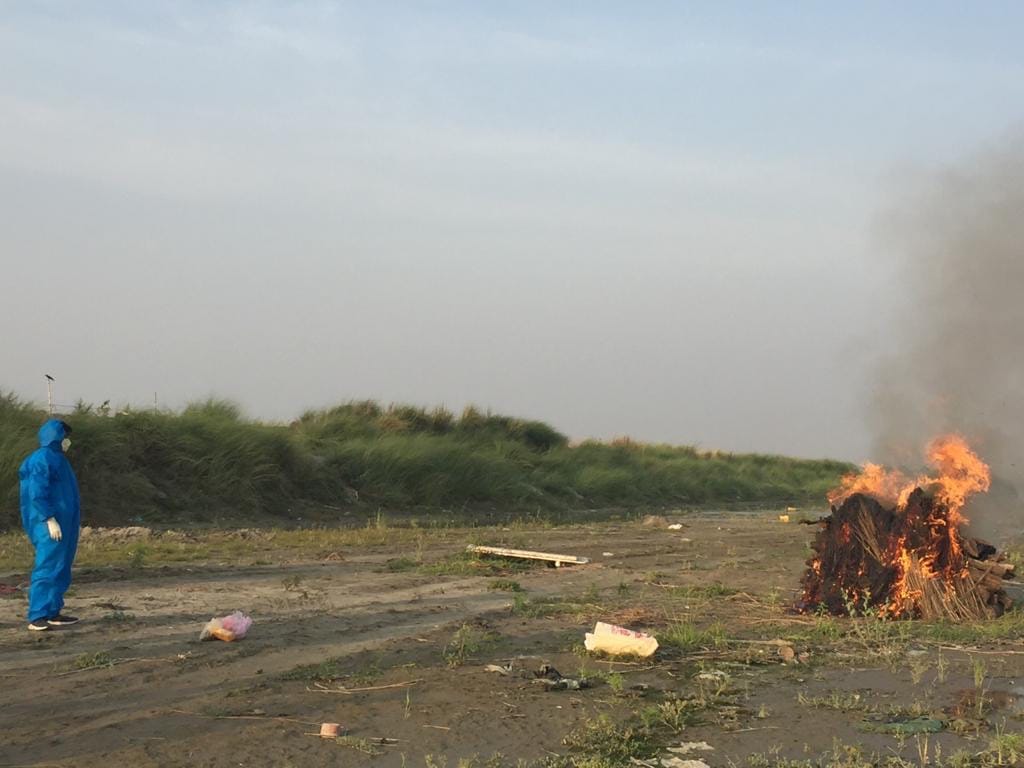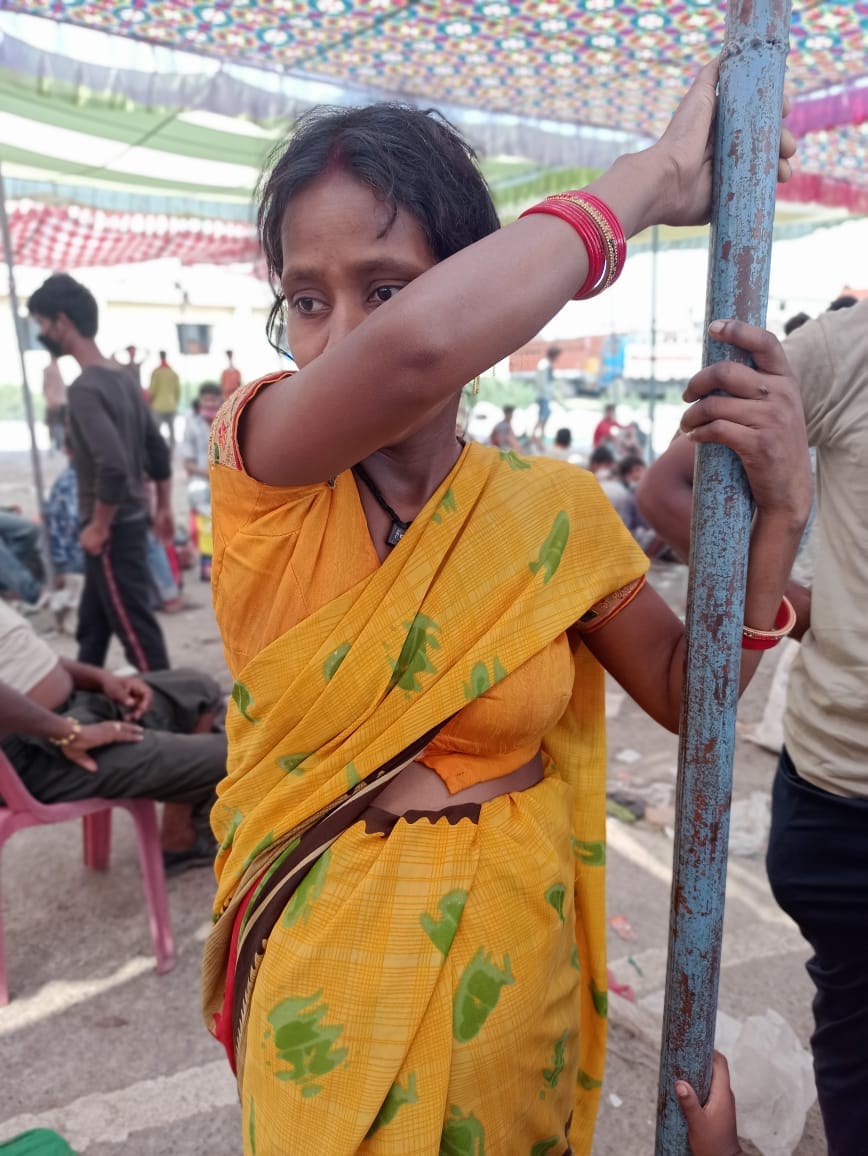Sitamarhi (Bihar): On the highway for more than a week now, my colleague Jyoti Yadav and I have seen life begin and end.
Before we left Delhi, a lot of our time, like it has been for a significant part of India, was spent sitting in our comfortable homes, reading about the mass exodus of migrant workers.
At the time, neither Jyoti and I could quite understand their plight nor could we comprehend the intensity of it. Only when we set out on our journey 10 days ago and spoke to the hundreds of labourers — some stranded by the highway, others walking barefoot with the singular focus of getting home — could we even begin to understand their agony.
Also read: These UP, Bihar migrants have opted to ‘sleep hungry with family’ than die alone in cities
Death
The death of 68-year-old Ram Kripal will forever remain with us.
Kripal, a migrant worker from Mumbai, had gone against the advice of his wife and got into a truck because he couldn’t wait to reach home and be with his family. However, fate had different plans for him; he died just 30 km shy of his destination, a remote village in Sant Kabir Nagar, UP.
Clad in a PPE suit, his eldest son Surinder broke down as he helplessly watched his father’s body being zipped into a body bag.
We were there as journalists and our job was to report on what was happening. But that didn’t mean we could simply deny the anguish the situation had caused us — having to interview a grieving person and record the footage.
The hardest part was watching a continuously sobbing Surinder light his father’s pyre and watch it burn from a distance, only to be quarantined a few minutes later.

When we went to see the family back at the village, Kripal’s widow was inconsolable; she was beating the ground with her hands, while her eyes were filled with grief and the unfulfilled desire of seeing her husband one last time.
While recording her, both us could feel our hearts constrict. She, along with the other women in the village, kept singing a song, ‘O Raja’, to mourn Kripal’s death. The next day, Kripal’s widow and three other family members were quarantined.
We couldn’t quite understand why she was quarantined since she was at least 500m from Kripal’s body. Surinder kept calling us from the quarantine centre, crying, telling us that his mother deserved to mourn her husband’s demise surrounded by family.
Also read: Remote, isolated and flood-prone, UP’s Sitapur villages have bigger worries than coronavirus
Birth
Three days after Kripal’s death, we witnessed birth when 28-year-old Rekha had her fifth child.
Our driver Manishji spotted Rekha standing at the transit centre in Gopalganj, near the UP-Bihar border, holding onto her stomach and looking like she was silently shrieking in pain.
Manishji and I asked her to sit down and offered her water, which she refused. When I asked her if her abdomen hurt, Rekha broke down, nodding and sobbing.
It took me sometime to understand that she was in labour as I had never witnessed it before. Rekha said she couldn’t sit due to excruciating pain while her relative informed us: “Uska baccha kabhi bhi ho sakta he (She might deliver anytime now),”. That is when I realised Rekha needed to be rushed to the hospital immediately.

I ran to Jyoti, who was talking to migrant workers nearby. She immediately called up the superintendent of Gopalganj, Manoj Kumar Tiwari, who sent an ambulance within a few minutes.
What shocked us was that in all this time, despite being in miserable, excruciating pain, Rekha had not complained or cried out loud.
She was sent to Sadar hospital in Gopalganj, where she delivered a baby girl at 5:45 pm. We later found out that she was forced to wait a couple of hours because the hospital initially refused to admit her amid fears that she would be a contamination risk. Her husband Sandeep called us and informed about what had happened, which senior administrative officials at district magistrate (DM)’s office also confirmed later in the evening.
After the Gopalganj DM, Arshad Aziz, and a senior doctor intervened, Rekha was admitted.
Jyoti, who had gone to the hospital to check on Rekha, happened to be there when the delivery took place.
The moment the baby was born, Jyoti called me up, and we shared a moment of overwhelming joy that neither of us will ever find the words to describe.
In the evening, we visited the DM’s office again, and he assured us that the baby, mother and the entire family were being taken care of. We were also told that the family’s samples were collected to be tested for coronavirus. We don’t know the results yet.
We then visited Rekha around 9pm. She lay on the hospital bed looking pale, her stomach still aching from the delivery. The rest of the room also seemed to share the pain, with not much cheer among the family members.
Her husband, Sandeep, told us he was unhappy and that his father had also cried when the baby was born.
They had had a girl.
“I have five daughters now. How will I marry them off? I am too poor, and we survive (on) my meagre income,” Sandeep said.
Also read: It’s back to work for these migrants who, after walking barefoot, finally made it home to UP


Great job by you dedicated journalists. God greatly Bless you for great service and may He good journalists like you.
Great job by you journalists. God Bless you Bismee n Jyothi for your great service.